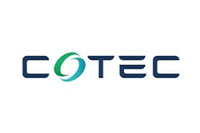Expert: Can a United Front Loosen China’s Rare Earths and Critical Minerals Hold?
Expert Gracelin Baskaran is urging western allies to form a coordinated “anchor market” to counter China’s dominance in critical minerals.

As western automakers reel from yet another round of Chinese export restrictions on rare earths, the urgency to create a counterweight to Beijing’s dominance over global mineral supply chains is reaching new heights.
At the center of the conversation is a persistent and disruptive strategy: Chinese state-backed firms flood global markets with critical minerals, push prices below sustainable production levels and wipe out foreign competition.
In response, experts like Gracelin Baskaran, director of the Critical Minerals Security Program at the Center for Strategic and International Studies, are calling for a fundamentally different playbook.
In her view, it's time for nations to coordinate their market power and engage in collective deterrence.
“If countries continue to operate independently instead of collectively, China will retain its dominant position because no single nation has enough market leverage on its own,” Baskaran argues in her recent commentary.
The scale of disruption is difficult to overstate. In just three years, global prices for core energy transition minerals have collapsed. Between May 2022 and May 2025, prices for cobalt fell nearly 60 percent. Nickel prices plunged 73 percent, while lithium prices cratered by almost 87 percent. In each case, price collapses coincided with waves of supply from China or Chinese-backed operations, forcing western producers to shut down or defer investment.
Baskaran further explains that these price dynamics aren’t accidental.
Chinese companies — which often receive subsidies, low-interest loans or direct state support — can afford to operate at near-zero or even negative profit margins, squeezing out foreign firms that need to show a return on capital.
When it comes to rare earths, with 90 percent of refining under its control, China can suppress prices long enough to bankrupt competition, then raise prices once dominance is assured.
For Baskaran, the closure of Jervois Global's (ASX:JRV,OTC Pink:JRVMQ) cobalt mine in Idaho and BHP's (ASX:BHP,NYSE:BHP,LSE:BHP) Nickel West project in Australia illustrate how fragile western efforts are when exposed to this kind of strategic economic pressure.
Tariffs alone won’t cut it
To date, responses from the US have largely focused on domestic industrial policy — subsidies, tax credits and isolated tariffs. But given the country’s relatively small share of global minerals demand — just 1.7 percent for rare earths, for example — US actions alone are unlikely to move the needle.
“While tariffs can be an effective instrument, a single country acting alone is unlikely to make a significant difference for mineral prices given the small size of their offtake markets,” Baskaran stresses.
Instead, she suggests that any meaningful response must involve coordinated policy across a coalition of major consuming nations. The proposed solution is a shared “anchor market” — a bloc of like-minded countries that harmonize tariffs, coordinate investment protections and implement shared procurement rules.
If executed well, she believes this approach could flip the current dynamic, placing reciprocal pressure on China while supporting market conditions where western producers can survive.
“A unified market of this scale would be capable of challenging China’s dominance and providing the West with meaningful strategic leverage,” she adds in her piece.
Such a coalition is not hypothetical. The Minerals Security Partnership (MSP), an initiative involving 14 countries and the EU, already exists to foster cooperation on supply chain resilience.
With a combined market of nearly 2.8 billion people — double the population of China — Baskaran states that the MSP represents a latent force that, if fully activated, could counterbalance Chinese leverage.
Leverage through scale and policy
The power of an anchor market lies in its ability to send long-term price signals and create investor certainty.
Gradual import quotas, for instance, could mandate that a growing share of mineral inputs — starting at 10 percent and scaling to 60 percent over a decade — come from within anchor market countries.
Baskaran explains that unlike tax incentives, which are temporary and non-binding, quotas offer a durable guarantee that demand will materialize, helping de-risk large-scale mineral investments.
Equally important is investment protection. Chinese firms continue to buy up critical minerals assets abroad, even in a weak price environment, ensuring that they control future supply. If this trend continues, any market-based response from the west may simply enrich Chinese shareholders in the long run.
Australia’s key role and the G7’s moment for market unity
Baskaran highlights that, among potential partners, Australia stands out.
With rich deposits of 31 critical minerals and advanced mining capabilities, it is essential to any serious diversification plan. Mining already contributes over 13 percent to its GDP, compared to just over 1 percent in the US.
Politically, Australia has taken a hardline stance on Chinese influence, from banning Huawei in 2018 to imposing university research safeguards and building a state-backed mineral reserve to reduce foreign dependency.
The G7 summit in Canada offers a unique moment to align policy. All G7 countries have identified critical minerals security as a priority. By formalizing the anchor market concept, Baskaran argues that the G7 nations and their partners could finally mount a credible economic counteroffensive: “The anchor market can shift leverage away from Beijing and toward a more resilient, rules-based minerals ecosystem.”
Don’t forget to follow us @INN_Resource for real-time updates!
Securities Disclosure: I, Giann Liguid, hold no direct investment interest in any company mentioned in this article.
- Trump's Tariffs Disrupting North American Critical Minerals Supply Chains ›
- Trump Invokes Wartime Powers to Boost US Critical Minerals Production ›
- Trump Takes Aim at China with Deep-Sea Mining Nod, Looks to Boost Critical Minerals ›
- Trump Orders Security Probe on Rare Earths and Critical Minerals Imports ›




